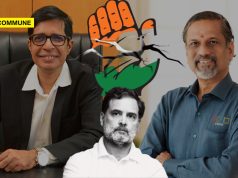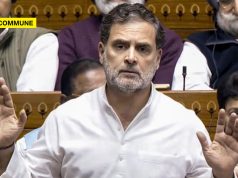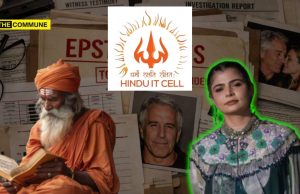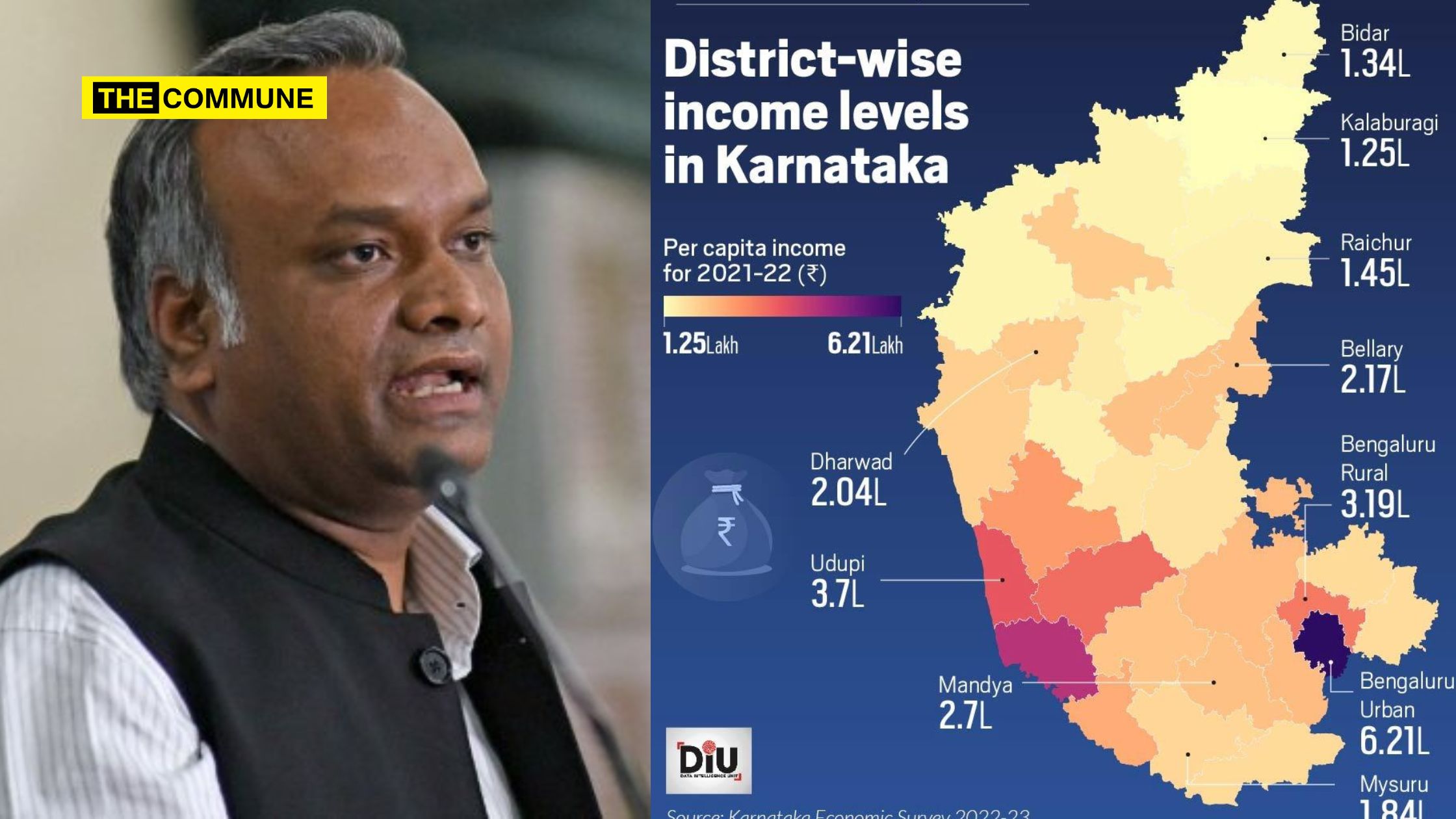
Karnataka Minister of Information Technology and Rural Development, Priyank Kharge of the Congress, has been embroiled in a controversy following his recent comments on migration of people from Uttar Pradesh to southern part of India for job opportunities. In his remarks, Kharge allegedly denigrated the social infrastructure of north Indian states, sparking criticism from various quarters.
Congress after winning Karnataka wants North vs South divide for Poltics.
Congress leader @PriyankKharge insults UP, MP and whole Hindi Heartland.
Rahul Gandhi did Bharat 'Jodo' Yatra, kept alliance name I.N.D.I.A but this is its real face.
Congress wants "Bharat Todo" pic.twitter.com/bADO24vs9f
— Ankur Singh (@iAnkurSingh) August 2, 2023
Kharge in his remark said, “Have you ever heard any Kannadiga say I am going to Uttar Pradesh for a job? I will show you how many people from UP and Madhya Pradesh are there in Karnataka. They come here because of the ecosystem. The Hindi heartland thinks that they can come to South India and earn a livelihood. Nobody from the South thinks they can go to the Hindi heartland and earn a livelihood because of the social infrastructure there.”
Kharge’s comments are typical of those peddled by his Dravidian Stock allies in Tamil Nadu, who often resort to belittling migrant workers from states like Uttar Pradesh, Bihar, Odisha, Jharkhand, West Bengal, etc who come to southern states to eke out a living.
Kharge’s comments have ignited a fierce debate, with many accusing the Congress Minister of resorting to divisive tactics and indulging in regional politics. Critics have raised questions about the Congress party’s rule at the center for over six decades and how Kharge’s remarks reflect on its governance and approach towards national integration.
The Karnataka Congress Minister’s statements were deemed unwelcoming and unbecoming of a national party member. Instead of promoting unity and inclusivity, Kharge’s comments seemed to take a dig at Indian states in the north of India and their social structure, further adding fuel to the fire of regionalism.
Moreover, Kharge’s factual inaccuracies have been called out, as it is observed that migrants from various states predominantly converge in Bengaluru, not throughout Karnataka. Several parts of the state, excluding Bengaluru and Mysuru, continue to grapple with underdevelopment and inadequate infrastructure.
One such region is Kalaburagi, a district in North Karnataka considered a bastion of the Kharge family’s political stronghold for 65 years under the Indian National Congress’s rule. Priyank Kharge is an MLA from Chittapur constituency.
Despite this long-standing association, the district remains plagued by underdevelopment, with 18.63% of the population classified as multidimensionally poor by the National Family Health Survey (2019-21), ranking it third among the poorest districts in Karnataka, behind Yadgir and Raichur.
The NITI Aayog National Multidimensional Poverty Index 2023 gives plenty of insights into the details of each of the states. Here is some information from the report for Karnataka.
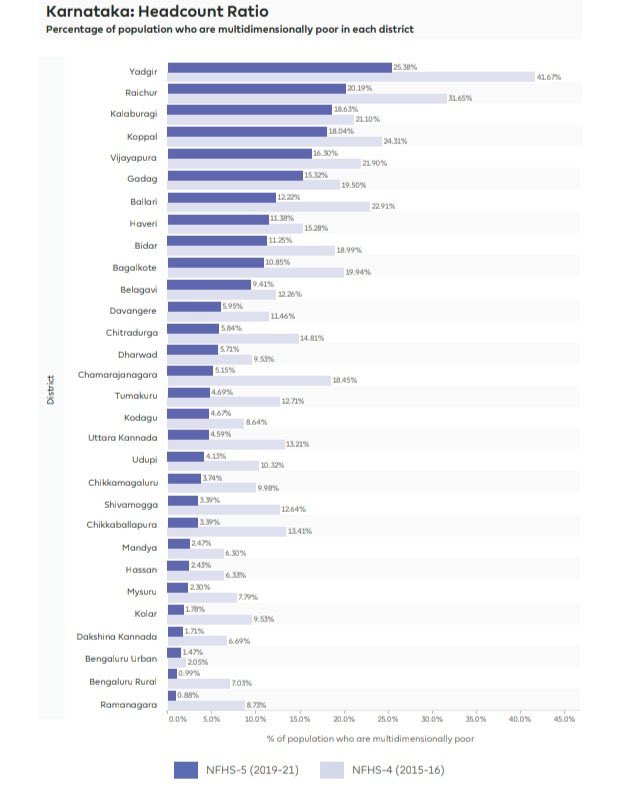
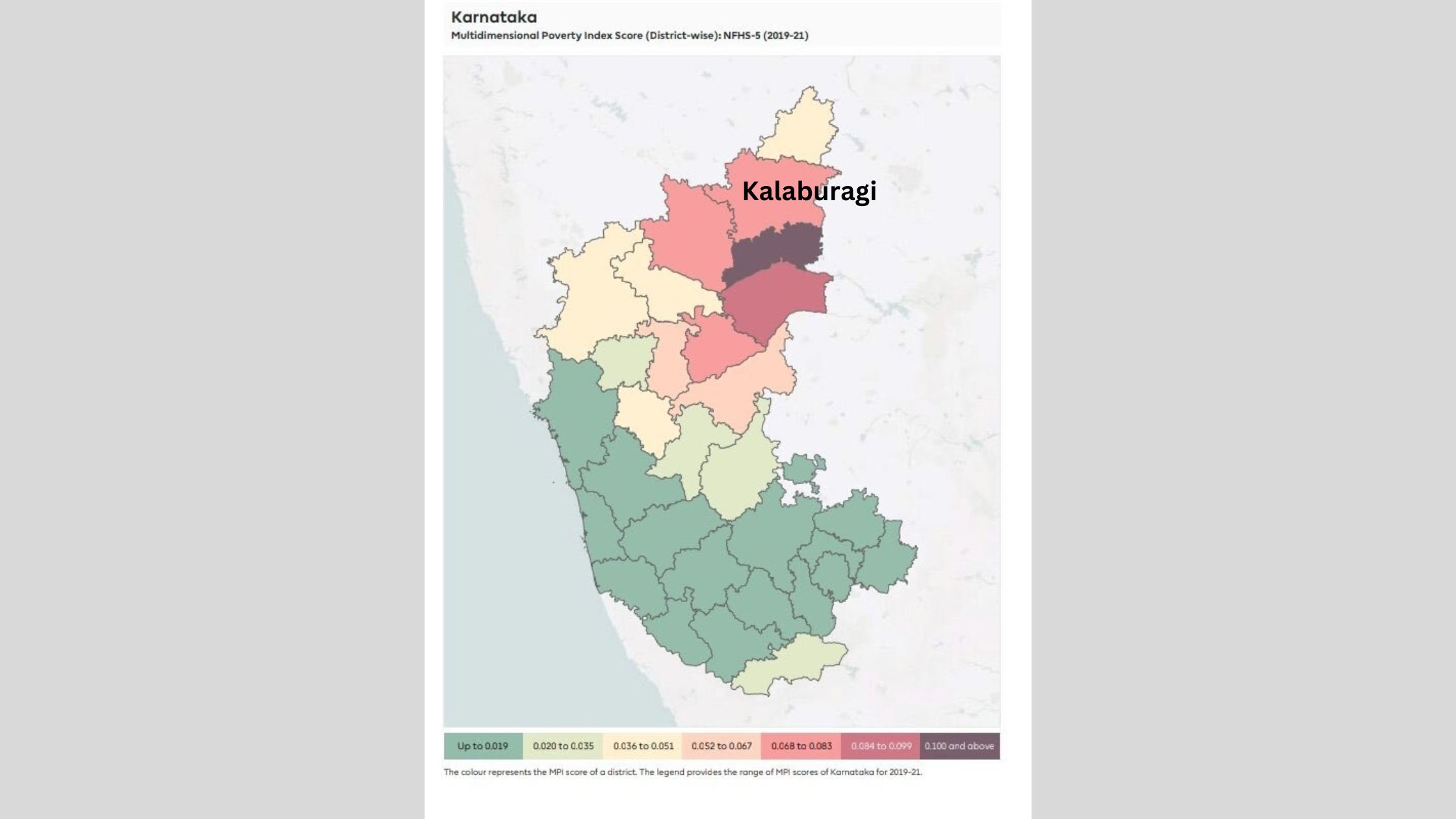
The average income in Bengaluru Urban region is five times higher than the average income in Kalaburagi, which stands as the poorest district in Karnataka with a per capita income of ₹1.2 lakh in FY22 as per the Karnataka Economic Survey 2022-23. It appears that the more affluent districts of Karnataka experience faster economic growth compared to the less prosperous ones.

The report states that Kalaburgi revenue region (comprising Ballari, Bidar, Kalaburgi, Koppal, Raichuru and Yadagiri districts), stood lowest in the per capita income followed by Belagavi and Mysore divisions due to less presence of industries and services sectors in these regions indicating a dire need for development of industries and services in these regions.
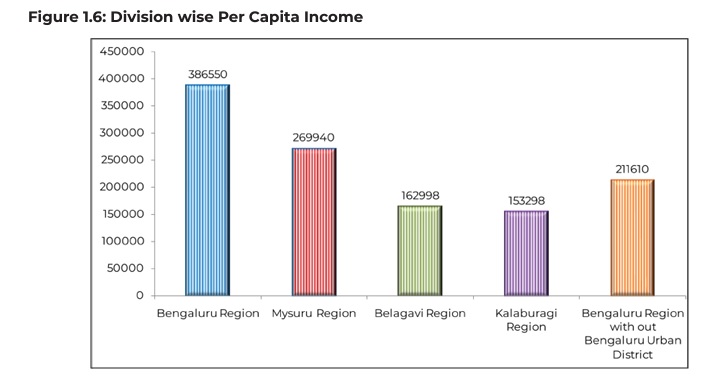
In Bengaluru Urban, the agriculture sector’s contribution to its GDP is only 0.5%, while in all other districts, agriculture constitutes at least 10 per cent of the GDP. However, in Yadgir, one of the poorest districts, agriculture makes up about 50% of the GDP.
The Karnataka Economic Survey 2022-23, Bengaluru Urban district accounted for 35.6% of the state’s GDP in 2021-22, reflecting its significant contribution to the total value of final goods and services in the state, followed by Dakshina Kannada (5.7%), Belagavi (4.2%).
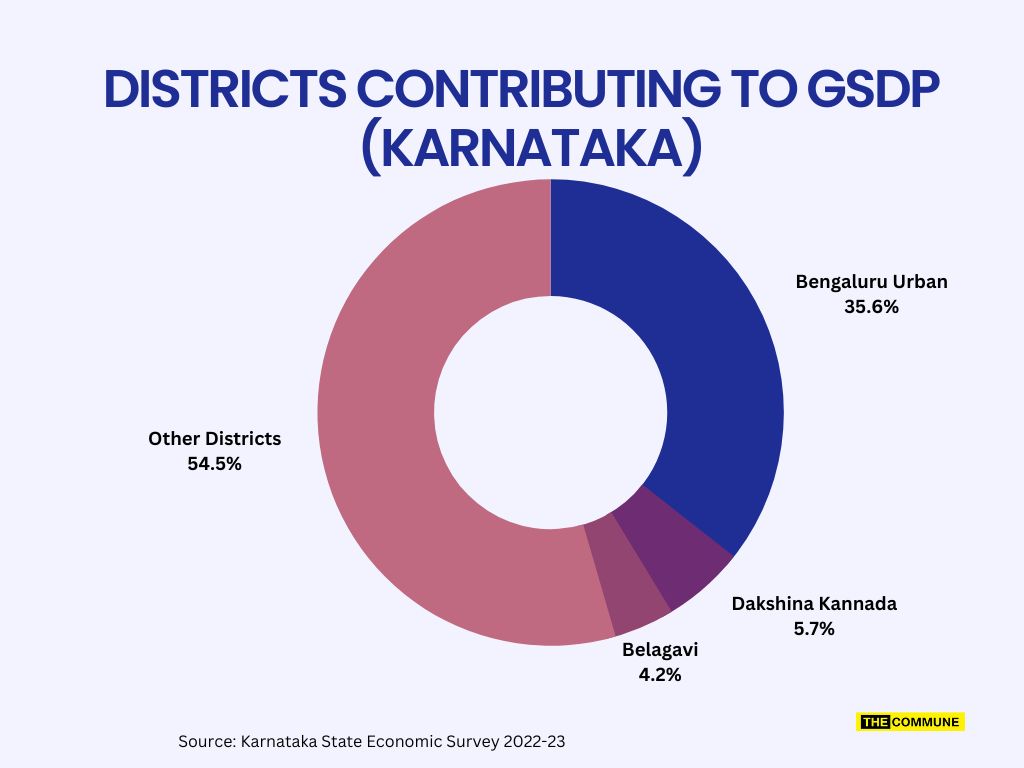

Before the launch of PM Modi’s Jal Jeevan Mission, only 15.06% households had a tap water connection. Now it has increased to 60.45%.
It is to be noted that barring 1998 and 2019, it was the Congress which had held this constituency. Priyank Kharge’s father and the so-called Congress President Mallikarjun Kharge was the MP of Kalaburagi from 2009 to 2019. Yet, the people of the region are getting as basic as tap water and bank accounts only now.
Critics argue that Kharge’s own constituency and political domain should be the primary focus of development, rather than making unwarranted comments about labor migration from other states. They point out that the lack of opportunities and development in North Karnataka, coupled with political leadership, has contributed to locals seeking employment in other states, including major cities like Mumbai and Hyderabad.
Prank minister
Sorry Troll Minister
Your family is ruling North Karnataka since 5 decades
And the highest labour migration from Karnataka happens from these districts
People from Kalaburgi and Bidar go to mumbai, hyderabad as coolies, construction labour and low wage workers… pic.twitter.com/SKuIytf8L4— Swathi Bellam (@BellamSwathi) August 2, 2023
Kharge’s apprehensions about labour migration from Uttar Pradesh and Bihar to Karnataka have been met with further scrutiny, as critics remind him of his alliance partners’ political reign in those states. They urge Kharge to address the issue within the context of collaborative efforts with leaders like Akhilesh Yadav, Nitish Kumar, and Lalu Yadav.
It has also been pointed out that the presence of people from various states in tier-1 cities is not an anomaly, as cities like Mumbai and Delhi also demonstrate diverse migrant populations. Thus, the claim of a lack of social infrastructure in North Indian states has been contested as factually incorrect.
Notwithstanding Kharge’s remarks, it should be acknowledged that Uttar Pradesh has demonstrated remarkable economic growth in recent years, shedding the label of a “BIMARU state.” The impressive 16.8% GDP growth in 2022-23, surpassing the national average, reflects improved law and order and increased foreign investments.
In light of the mounting criticism, Priyank Kharge faces growing calls to reflect on the developmental needs within his own constituency and work towards comprehensive solutions for the betterment of the region. As a national party member and now a state Minister, responsible and inclusive political discourse should be at the forefront of his agenda, rather than indulging in divisive rhetoric and acting like a troll on social media, say many.
Kaathavaraayan is a columnist and political commentator.
Click here to subscribe to The Commune on Telegram and get the best stories of the day delivered to you personally.

